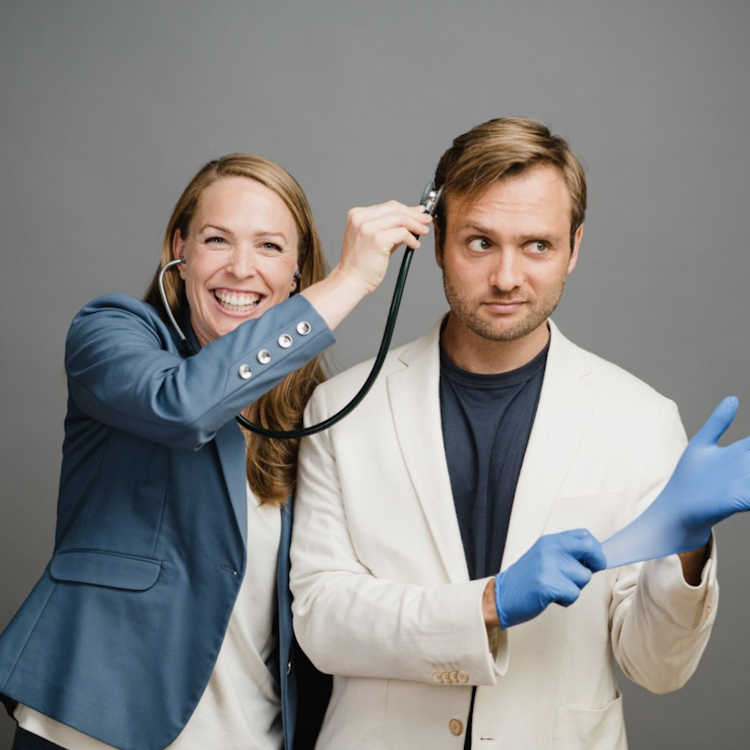The common narrative in tech goes like this: brave souls drop out of university to build game-changing products, going all-in and betting their futures and all their savings on their idea. "Go big or go home" is often hailed as the only true entrepreneurship approach.
Being doctors with safe jobs and a rather risk-averse mindset that naturally comes from caring for patients, we felt intimidated by this lore. Instead, we decided to take a more measured path: we both started as part-time entrepreneurs.
Part-time entrepreneurship has an unfairly negative reputation, despite the fact that many people don’t have the resources to quit their job and build. Here’s why we believe it can be hugely rewarding.
Building while still employed full-time
We created a card game for doctors that sells over 2,000 units annually — without paid marketing — is an award winner, listed as "Amazon's choice" and just launched English-language and nursing versions. All this while we continued with our careers.
Today, Johanna still performs surgery full-time, while Sven ended up taking the leap into a full-time career as the cofounder and CEO of his own deeptech diagnostics company. The experience of growing our part-time venture taught us essential skills about marketing, product development and logistics, and contributed at least somewhat to Sven’s decision to become a full-time entrepreneur.
Critics of part-time entrepreneurship argue that one cannot split their attention, their time or their network between two significant commitments and be successful at either. They suggest that the safety net of a regular job undermines the necessary drive to surmount the do-or-die moments that startups inevitably face.
You can make mistakes, learn, and grow without the immense pressure of having your livelihood entirely depending on the new venture's success
And yes, many successful ventures do require a founder's full attention — but certainly not all. Plus, part-time entrepreneurship offers compelling advantages, the first of which is the ability to experience the joy of creation, the thrill of overcoming challenges and the satisfaction of seeing your product bring value to people's lives while maintaining the safety net of your regular job.
Furthermore, it's a great way to prepare for full-time entrepreneurship. You can make mistakes, learn and grow without the immense pressure of having your livelihood entirely depending on the new venture's success, or being responsible for other people’s money.
And even if you aren’t thinking of becoming a full-time founder, additional experience diversifies your career against risks, generates meaningful upside and injects variety into life. You’ll learn new skills which can be applied to success at your day job as well.
It's also an excellent approach to strengthening relationships and experiencing the unique bond of building something meaningful with a friend. Our shared venture has enriched our friendship and given us countless moments of joy and satisfaction.
Don’t be intimidated by the all-or-nothing mantra
The problem with Silicon Valley’s “all-or-nothing” mantra is that it ignores that many people don’t have the financial safety net to go all-in as an entrepreneur at first. They may be carers or parents, with family depending on them. A broader acceptance of building part-time would also help open up entrepreneurship as a path to people who didn’t previously think it open to them.
So, to those contemplating the entrepreneurial leap but fearing to give up their day jobs: don’t get intimidated by the often disempowering notions and consider the part-time route for yourself first. It may not have the glamour, and it might not become the next NVIDIA, but you might discover how rewarding it feels to have created something that thousands of people love to use.
And who knows — it might just be your first step into something truly big that you will want to give your all for.



